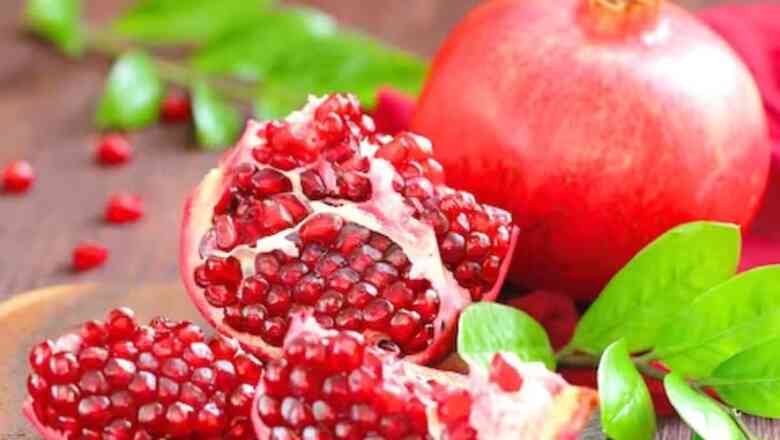
views
Fruits are an excellent source of essential vitamins, minerals, and fibre, providing numerous health benefits such as immune system support, weight management, and hydration. Pomegranate, in particular, stands out as a powerhouse of nutrients, containing Vitamin C and B, magnesium, phosphorus, selenium, potassium, and zinc. Doctors often recommend its consumption for overall health improvement. Despite its widespread recognition, many individuals are unaware of its Hindi name, prompting a viral query on Quora.
The red-colored fruit commonly known as pomegranate has Persian origins. In Hindi, it is referred to as ‘Anar,’ and in Sanskrit, it is known as ‘Daadim.’ This fruit goes by different names in various languages – ‘Dalimb’ in Marathi, ‘Madhulai’ in Tamil, ‘Daniamma’ in Telugu, Daalim’ in Bengali, and ‘Maathalam’ in Malayalam. The Romans were the first to discover pomegranates.
Believed to have originated from Iran and neighbouring regions, the Arabic name for pomegranate is ‘Rumaan.’ Initially cultivated in areas spanning the Mediterranean Sea, the Arabian Peninsula, Afghanistan, and India, it is now grown globally. According to Healthline, pomegranates contribute to improved blood circulation, combat blood-related diseases, and are recommended for patients with high blood pressure. The fruit also provides relief from swelling and irritation, reduces arthritis and joint pain, and is associated with cancer prevention.
A report by Loma Linda University Health suggests that pomegranate juice can reduce the risk of Alzheimer’s disease. Health journalist Patricia Kelikani highlights that consuming a daily glass of pomegranate juice can halve the accumulation of harmful proteins linked to Alzheimer’s disease.
The pomegranate’s diverse names across languages reflect its global popularity and widespread cultivation. Its rich nutritional profile and health benefits, ranging from improved blood circulation to Alzheimer’s prevention, make it a valuable addition to a healthy diet. The Quora discussion not only revealed its Hindi name but also emphasized the fruit’s significance in promoting overall well-being.




















Comments
0 comment